Hall Answers The Call
Hall holds a catch in Alaska
June 2, 2016
After miles of trekking through the snow, Aaron Hall found himself more than a little lost in the vast, snowy Alaskan wilderness. He was trying to find a place to ice fish, but the flatness of the landscape threw off his orientation, making him think that his destination was much closer than it actually was. As the sun began to set, the situation became more and more treacherous. How was he going to get home when he had no idea what direction home was?
Just when a night in the snow seemed inevitable, a man on a snowmobile happened to drive past Hall and he decided to pull over to find out what was going on. Hall told him that he was trying to find a place to go ice-fishing.
“Are you crazy?” The man asked. “I’ll take you.”
Hall got on the four-wheeler and the man took him to the ice-fishing spot, showed him which direction the town was, and left him to catch a few fish. Now, in the dark, Hall was hopeful that he would be able to see the lights of the town, but he had no such luck. Thankfully, the man on the snowmobile decided to come back for him later and, against all odds, Hall made it home safely with a couple of fish on hand.
This is just one of many adventures that Hall has had in his lifetime, and it’s not the first or last time he has been called crazy.
Many students at Highland only know Mr. Hall as a math teacher, or the teacher that has written a book, but he is much more than meets the eye. Hall has traveled across the world, always pushing himself to become a better, more perceptive person.
Hall was raised in Alpine, Utah in a family of 11 brothers and sisters. During high school, his geography teacher, was very passionate about the Soviet Union, which ignited an interest within Hall and setting him off on his first big adventure.
“By the end of the year, I was equally fascinated with [the USSR],” Hall said. “I decided to convince my mom to let me be a high school exchange student to what was then the Soviet Union.”
Because of the tense relationship between the US and USSR, his mom was unconvinced that there would be an opportunity for Hall to participate in a program like this, but he got lucky and discovered that the following year the AFS (American Field Studies) was opening a program in the Soviet Union for high school students. So, as a junior in high school, Hall, along with 49 other American students, departed on the experience of a lifetime.
He was sent to Riga, Latvia, where he lived with a woman and her son. The most difficult experience Hall had as a foreign exchange student was trying to develop a relationship with his host mother in spite of the language barrier. His host brother helped bridge the gap between them, but they were often forced to communicate through hand gestures instead of words.
“I wonder whether there were misunderstandings between us that remained misunderstandings until the day I left,” Hall said.
Upon arriving in Latvia, Hall was surprised to learn that school ran Monday through Saturday. He questioned whether or not he would have signed up had he known that he was going to be putting in an extra day.
Nonetheless, he persevered and attended an English language school for the first half of the year, but soon decided that the school was inhibiting his ability to learn Russian. So naturally, he decided to contact the Latvian Ministry of Education and made a request to change to a Russian speaking school, something that illustrates Hall’s unparalleled drive and desire to challenge himself in all areas of his life.
His experience in Latvia opened his eyes to a new culture and made him realize that the preconceived notions people tend to have of other places are often completely wrong. He often found himself surprised by different customs, and he loved the strange assumptions that people made about him as an American.
“Whatever expectations you have of other people, throw that out the window,” Hall said. “Most of my classmates had never seen an American before…if I ever did something awkward, it wasn’t because I was a weird guy, it’s because I was an American.”
When it was time for him to return to the states, his parents had divorced and he found himself living with his mother and siblings in Oklahoma. The lack of stability and move to a place that was much more conservative than he was used to was an incredible challenge for him.
“I was told coming back I would get reverse cultural shock, but it was so much more powerful than I could ever have imagined,” Hall said. “I was lost to where my place in my family was. It probably took me a year to figure things out.”
He decided that Oklahoma was not a place that he wanted to be, so he took matters into his own hands, packed up his car, and moved back to Utah to stay with his older brother who was attending the University of Utah at the time. There, he finished his senior year at Highland and then attended the U, where he got a BA in Russian. After getting a job at a school for Special Education students, he was inspired to get his Masters in Special Education for the profoundly disabled.
“There is something really powerful about having a job where you walk in and 20 students greet you with beaming smiles, and they are just head over heels to see you,” Hall said.
After graduating, Hall returned to Highland and worked in the special ed department for three years, however he was not content with simply staying in Salt Lake.
“I had a mentor that suggested that if I stayed in Special Education I would burn myself out,” Hall said. “So I thought maybe I need to stir things up a little bit for myself. When I came across an ad for a 3rd/4th grade teacher up in Alaska, I figured this would be my chance to develop into something else.”
This launched Hall into an experience of a lifetime. Hall packed up and moved to Togiak, Alaska, a town which was only accessible by directly flying into it on a small plane. Togiak was such a small and remote city, that there were no roads that connected it to any other towns, and all of his belongings and mail had to be flown into Togiak’s small airport. There also were no paved roads in the town and most people got around by snowmobile or four wheeler. This isolation however provided a sense of community that was unlike anything else Hall had ever experienced.
“There is a unique feeling of camaraderie and family when there is a smaller group of people,” Hall said. “When we had a prom, it wasn’t a senior prom, it wasn’t a junior prom, it was a city prom, and everybody from the whole community would come out.”
However, with the upsides of Alaskan community, there also were some setbacks. The problem with being so far north in the world is that during the summer, the sun almost never goes down, but, in the winter, the sun only comes up for very short windows of time. This posed multiple challenges for Hall as both a teacher and just as a person.
With no TV, internet or video games to pass the time during these dark, long winter months, Hall turned to reading and then subsequently to writing in order to endure.
“The faculty, the students, everyone gets cabin fever and you can’t be outside for fear of outside and it becomes a pretty difficult experience,” Hall said. “It was a way of escaping and doing something different without being able to go someplace, I did something different in my head by writing a book.”
And thus, in the cold Alaskan winter, the cult classic The Sorceress of Atunluck was born. It took Hall the three winter months in order to write and complete this fantasy novel that is now a modern day favorite among students.
After making it through the long winter into the warmer months and end of the school year, Hall made the decision to return to Salt Lake because he did not want to have to go through another difficult Alaskan winter. Upon his return to the lower 48, Hall jumped right back into teaching where he began to teach at Northwest Middle School, but soon found his way back to Highland, where he finished off his 17-year career in special education. During this time, Hall decided that he wanted to take math classes at the U in order to broaden his horizons and get experience in a field where he felt that he had missed out on earlier in his educational career. These classes had to have been a thing of destiny, because they ended up leading Hall into the job he has today.
“In a way I felt a little cheated that I had gone through my education and into my career without having a lot of math background,” Hall said. “After my Masters I went back and took some classes and before I knew it I had a Level 3 math endorsement.”
Hall’s wife, Kimberly Hunter, has been Hall’s biggest supporter and
“He’s always motivated, it makes me tired,” Hall’s wife, Kimberly Hunter said. “He’s constantly going back to school, and he loves learning.”
This led Hall to be the first man Highland’s administration turned to after one of the math teachers at the school suddenly decided to retire, two days before the start of school. In a panic to fill the now empty spot, the administration went through the faculty records to see if there was anyone who was qualified in any way to teach math. When they discovered that a certain Special Ed teacher had multiple advanced math endorsements, they turned to Hall in their ultimate moment of need. With only two days to get ready for a class he had never taught before, Hall stepped up to the plate and accepted the job. Even though planning an entire year’s worth of curriculum in two days is a task that most people would go crazy having to do, Hall took the assignment in stride and used it as a way to learn to become a better, more adaptable teacher. Then the next year when Hall was offered his spot in Special Education back, he declined, and three years later he’s still teaching his new love in math.


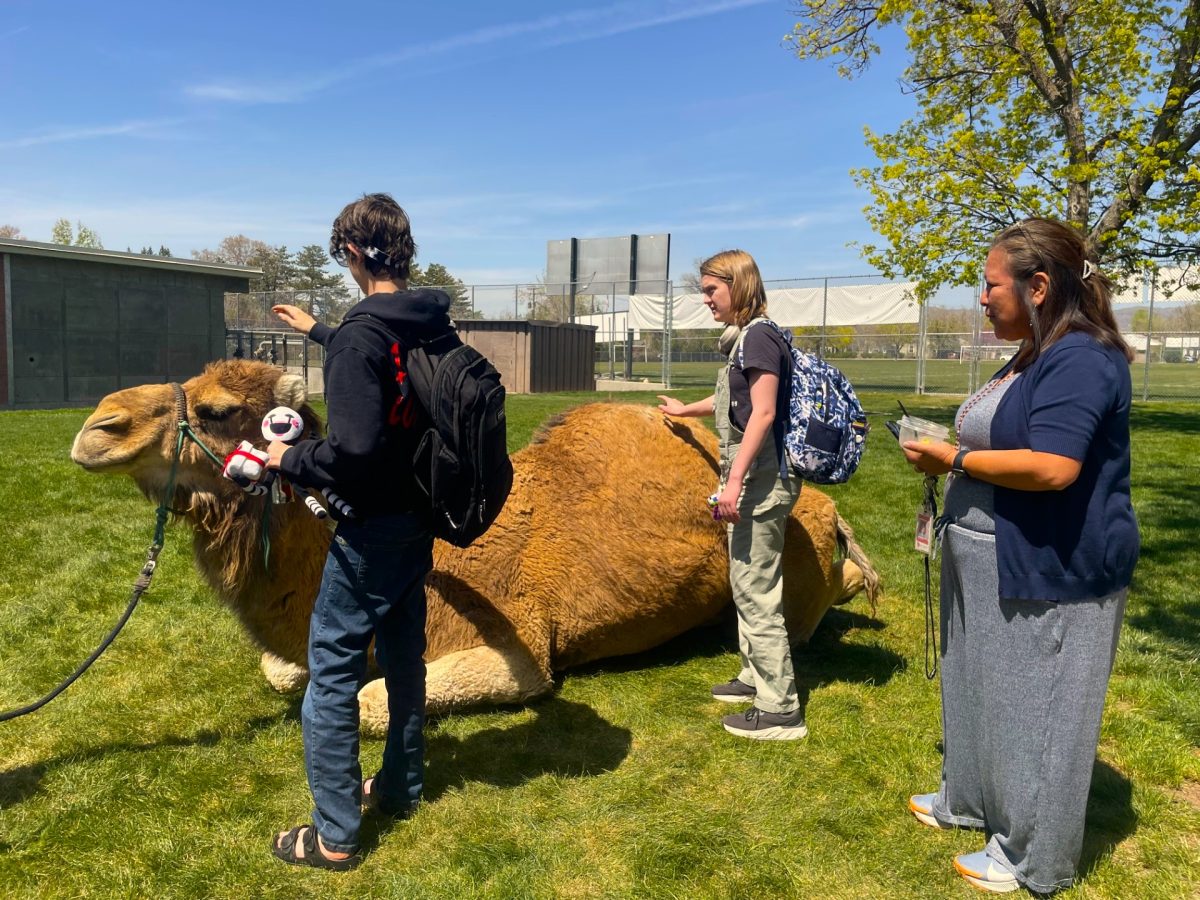
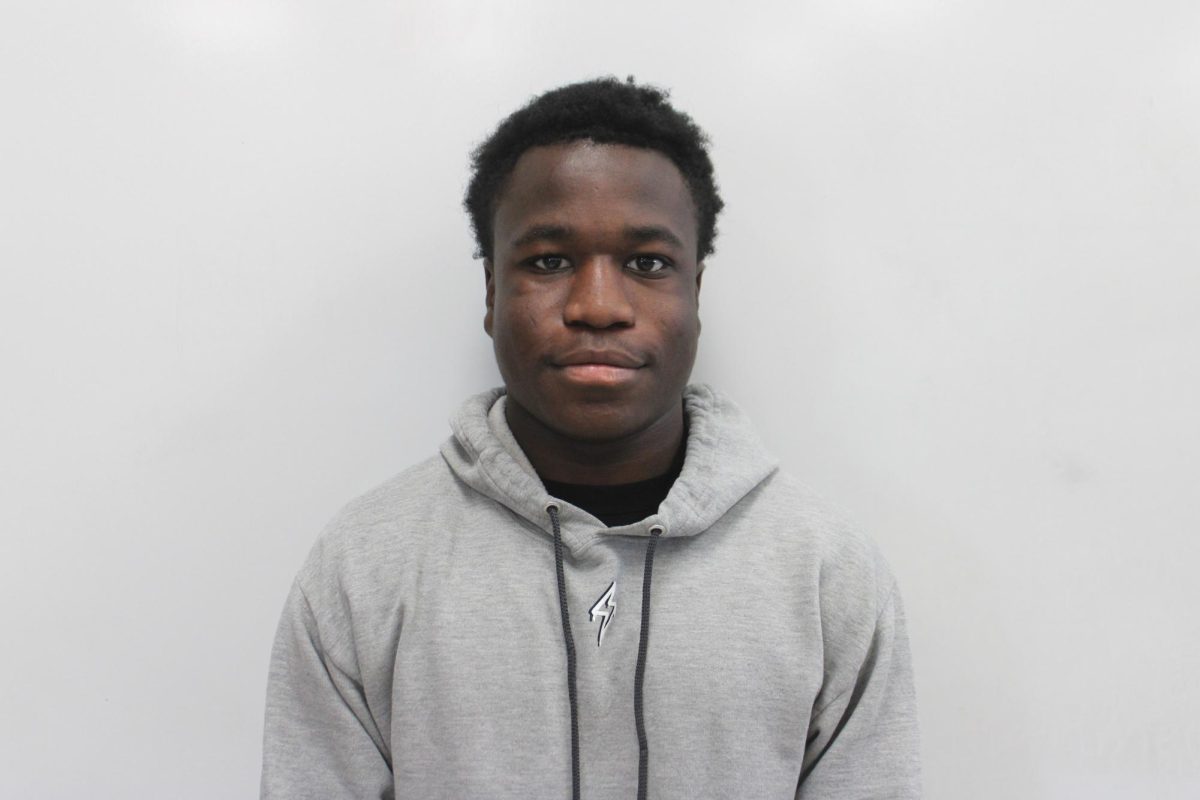
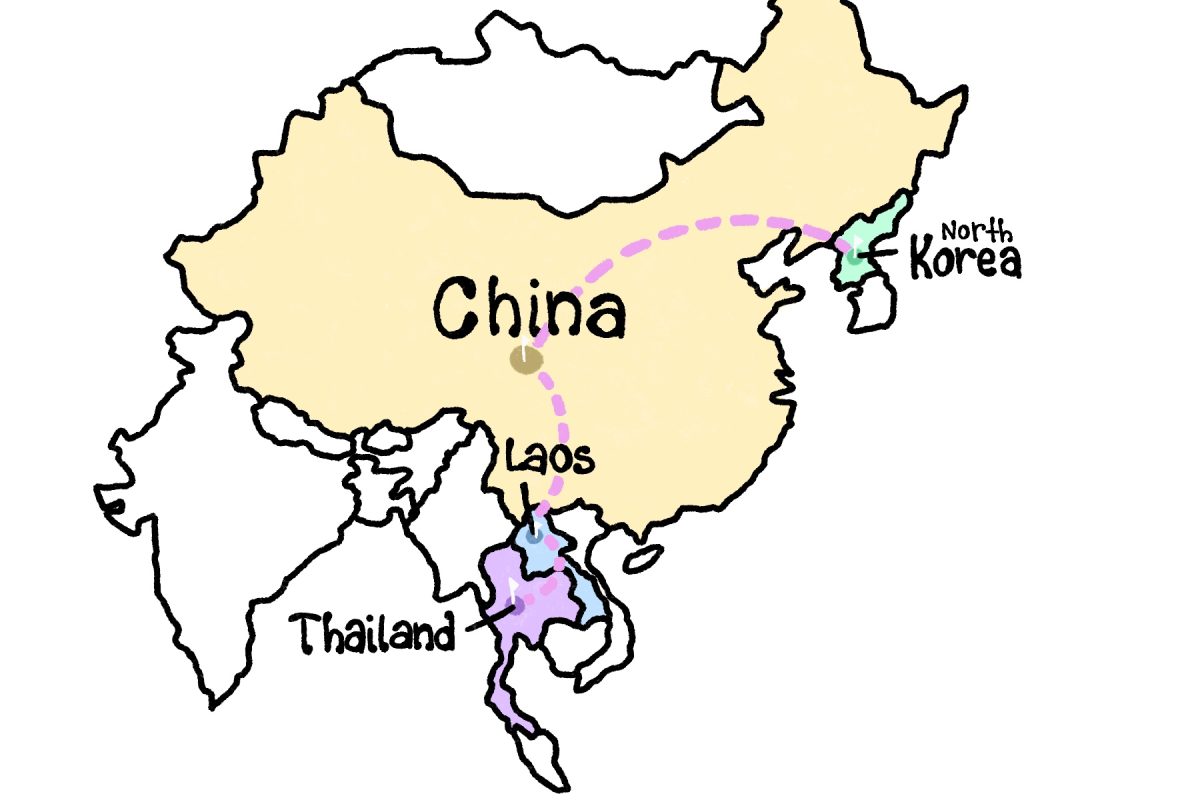

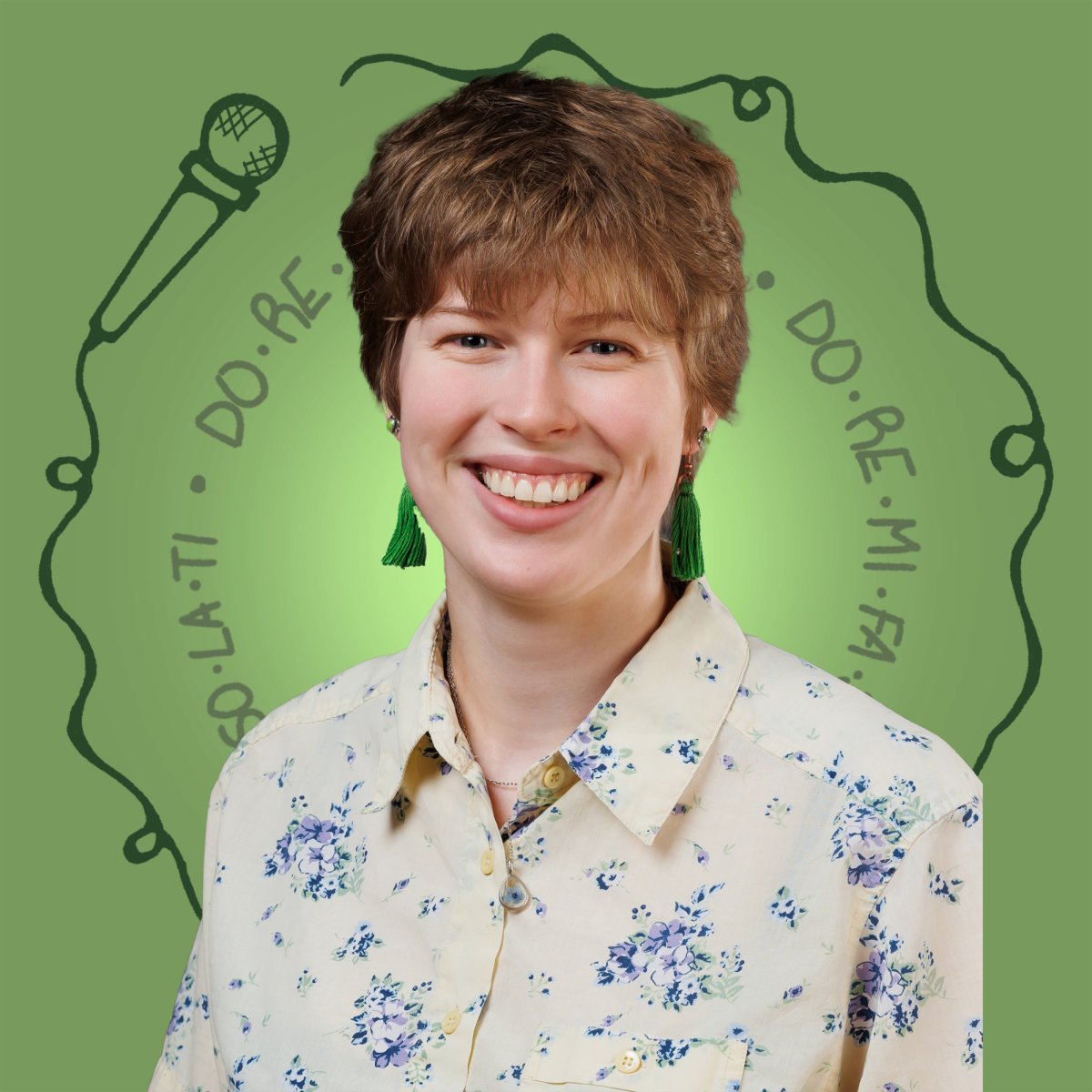
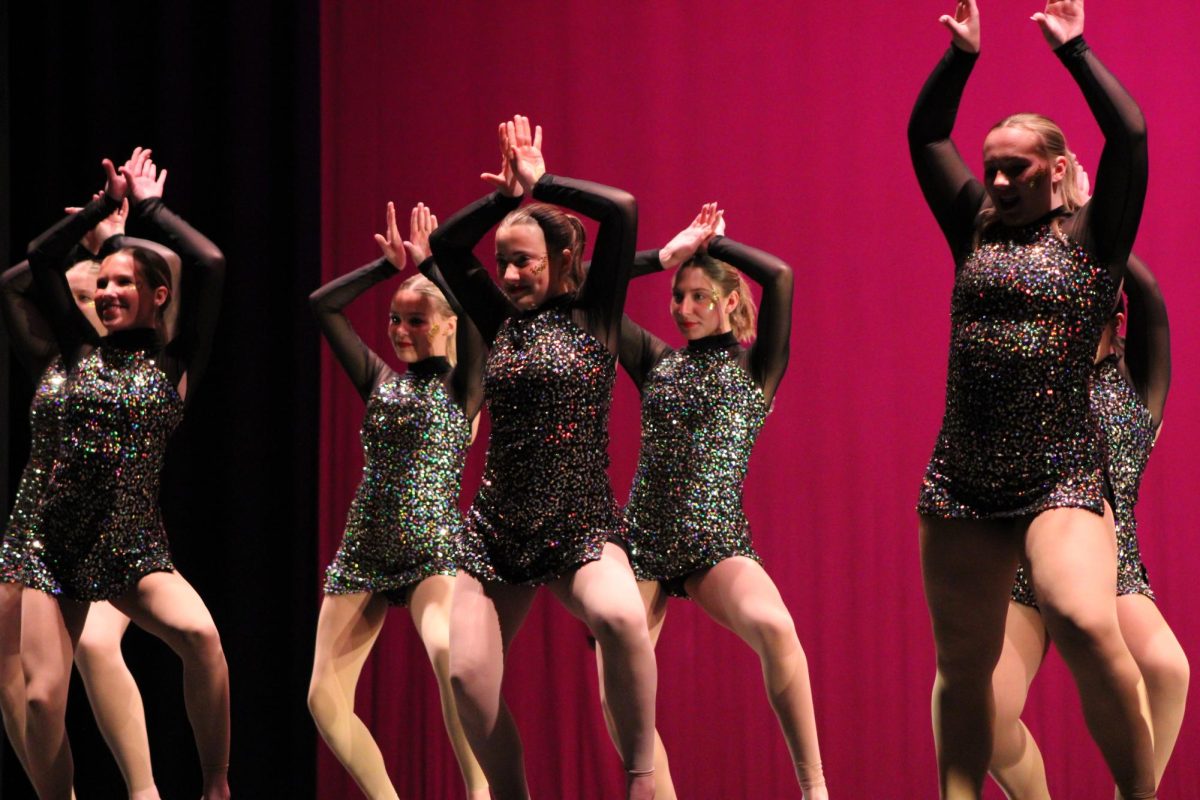



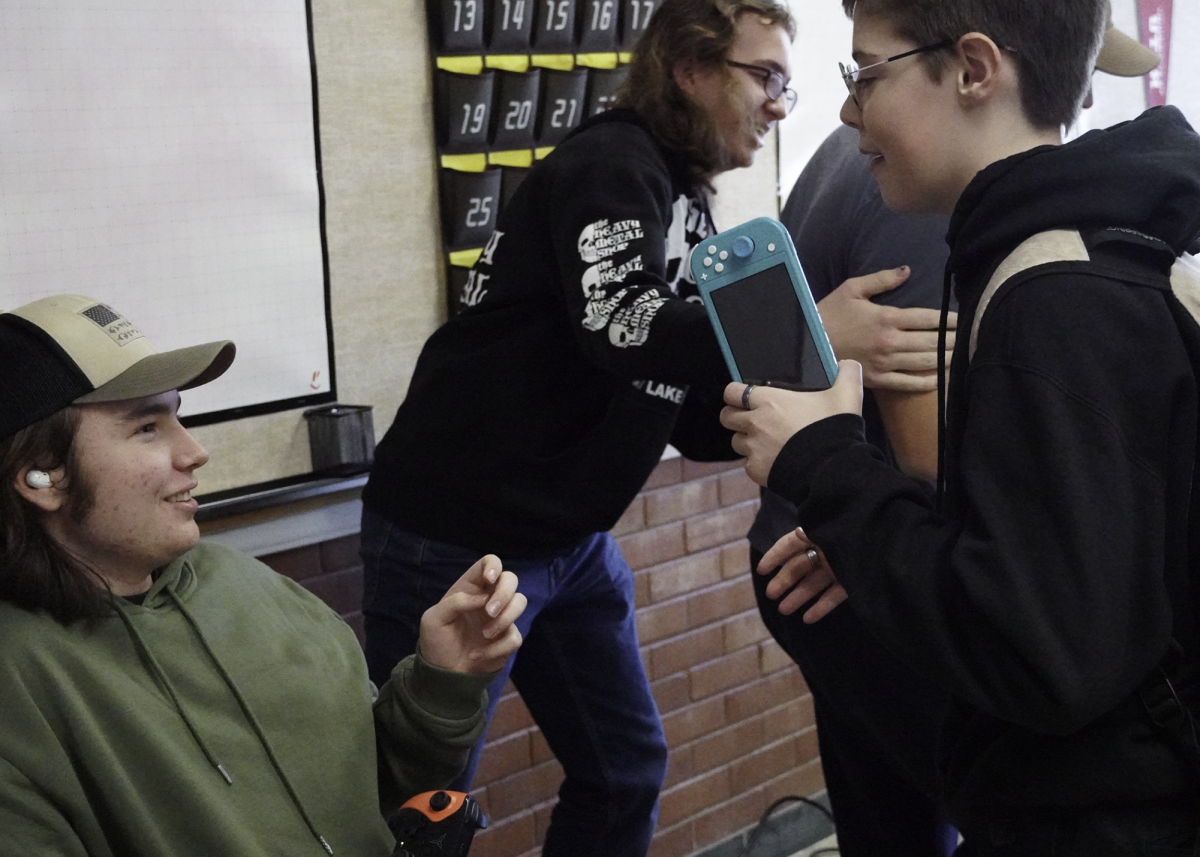
















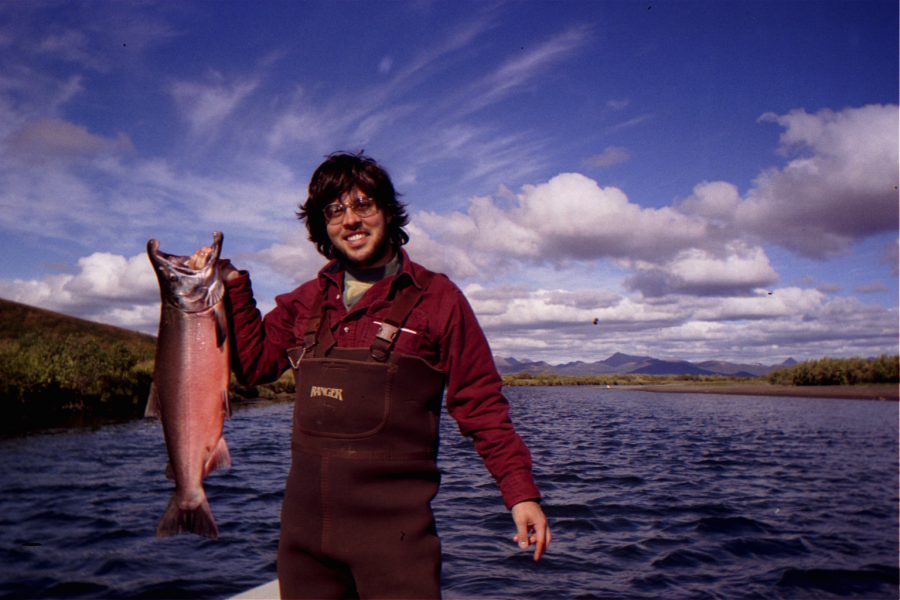
Kimberly • Jun 16, 2016 at 1:34 am
What a wonderful piece – very professionally written!